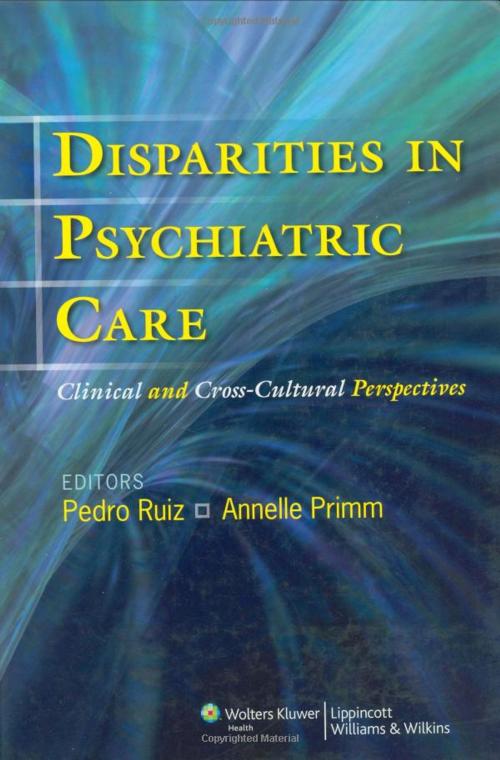Disparities in Psychiatric Care
Disparities in Psychiatric Care
Nonfiction, Health & Well Being, Medical, Specialties, Psychiatry, Ailments & Diseases, Mental Health| Author: | Pedro Ruiz, Annelle Primm | ISBN: | 9781451161366 |
| Publisher: | Wolters Kluwer Health | Publication: | February 3, 2012 |
| Imprint: | LWW | Language: | English |
| Author: | Pedro Ruiz, Annelle Primm |
| ISBN: | 9781451161366 |
| Publisher: | Wolters Kluwer Health |
| Publication: | February 3, 2012 |
| Imprint: | LWW |
| Language: | English |
This book offers evidence-based clinical approaches for understanding disparities in the provision of mental-health services in the U.S. and other industrialized nations. Chapters address the availability and barriers to care among various ethnic populations and the roles of their cultures, languages, and religions as they affect diagnostic and treatment approaches. Issues related to special populations such as migrants, refugees, incarcerated individuals, and the homeless are discussed. The book also addresses issues related to gender, sexual orientation, and age. Brief sections on training, education, and policy will lay the foundation for assessing evidence-based approaches and outcomes in these diverse populations.
This book offers evidence-based clinical approaches for understanding disparities in the provision of mental-health services in the U.S. and other industrialized nations. Chapters address the availability and barriers to care among various ethnic populations and the roles of their cultures, languages, and religions as they affect diagnostic and treatment approaches. Issues related to special populations such as migrants, refugees, incarcerated individuals, and the homeless are discussed. The book also addresses issues related to gender, sexual orientation, and age. Brief sections on training, education, and policy will lay the foundation for assessing evidence-based approaches and outcomes in these diverse populations.















